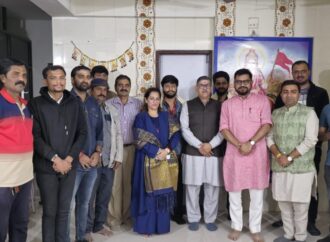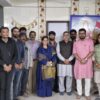In a recent revelation, the National Council of Educational Research and Training (NCERT) has stirred a debate with its latest round of revisions in school textbooks. Notably, references to historically significant events such as the demolition of Babri Masjid, the Gujarat riots, and the ideology of Hindutva have been omitted. Additionally, alterations in language regarding
In a recent revelation, the National Council of Educational Research and Training (NCERT) has stirred a debate with its latest round of revisions in school textbooks. Notably, references to historically significant events such as the demolition of Babri Masjid, the Gujarat riots, and the ideology of Hindutva have been omitted. Additionally, alterations in language regarding Manipur’s merger with India and the abrogation of Article 370 have raised eyebrows.
This move has ignited a flurry of opinions and discussions across various circles. While NCERT has remained silent on the rationale behind these revisions, claiming them to be part of routine updates, questions linger regarding the underlying motivations and implications.
Uncovering the Layers: Expert Insights and Perspectives
To delve deeper into this matter, we sought insights from experts in education, history, and social sciences, uncovering varied perspectives:
- Dr. Aparna Sharma, Historian: “The erasure of critical historical events from textbooks raises concerns about the integrity of our educational framework. Altering narratives could potentially distort students’ understanding of our collective past.”
- Prof. Siddharth Mehta, Social Scientist: “These revisions seem to align with a broader trend of ideological sanitization. Education should encourage critical thinking and inclusivity, not whitewash complex realities.”
- Dr. Priya Gupta, Education Specialist: “While updates are necessary to reflect evolving perspectives, the removal of contentious topics without transparent justification risks undermining academic integrity.”
Navigating the Controversy: Case Studies and Real-Life Implications
To illustrate the tangible impact of these revisions, let’s explore a couple of case studies:
- Riya’s Story: Riya, a high school student, recounts her confusion upon discovering the absence of crucial historical events in her textbooks. “I rely on textbooks for a comprehensive understanding of subjects. Omitting significant events feels like a disservice to our education.”
- Mr. Patel’s Concerns: Mr. Patel, a concerned parent, expresses apprehension about the implications of these changes. “Education should empower students with diverse perspectives. Shielding them from uncomfortable truths only hampers their intellectual growth.”
Anticipating the Future: Projections and Predictions
Looking ahead, experts anticipate several potential ramifications:
- Impact on Critical Thinking: The absence of diverse viewpoints could hinder students’ ability to critically analyze complex socio-political issues.
- Cultural Identity: Altering narratives may impact students’ understanding of their cultural heritage and identity.
- Educational Integrity: Continued revisions without transparent justifications may erode trust in the educational system.
















